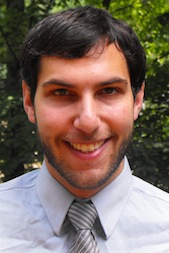According to the Jewish tradition, the period of repentance continues after Yom Kippur until the end of Sukkot. These days may continue to be an opportunity for reflection, but these final days of the holidays are days of celebration. Though none of us know what our fates hold for us, we act as if the process of Yom Kippur granted us atonement. We can begin our year feeling refreshed and renewed. Though many disagreements and injuries take more than a holiday to make up for, the holidays are, ideally, a time to successfully reflect on our goals for the year to help us face new challenges with confidence.
In our public discourse, we talk as if the prison system is supposed to be a process of teshuvah, and there have been many attempts at allowing those in prison to learn life skills, professional skills, or earn degrees, but these programs do not lead to the sort of teshuvah that leads us to celebrate at the end of this holiday season. Imagine what it feels like to be recently released from prison applying for your first job. In most states, employers are able to ask whether or not job applicants have a criminal record. Beginning the process with this question decreases the chances that employers will offer an interview. Even in the states that have “banned the box,” making it illegal to ask about criminal history until later in the process, there have been unintended consequences of discrimination against demographics more likely to spend time in prison. Completing sentences or even using prison time to learn marketable skills does not affect the wider social stigma that exists against those who spent time in prison. Our experience of the holidays teaches us how to be better at forgiving.
During the month of Tishrei, we bring together two seemingly contradictory emotions: humility and chutzpah. On the one hand we humble ourselves: throughout the season, we go through the long process of self-reflection that leads us to teshuvah—repentance. On Rosh Hashanah, we imagine God as the ruler of the universe and evoke a sense of awe as we stand before God. On Yom Kippur, we publicly confess our communal sins and afflict ourselves to show that we recognize our collective responsibility. On this holiday, Sukkot, we make ourselves vulnerable to the elements by leaving our houses to dwell in the sukkah. As hard as we try, though, these attempts at humility depend on a stronger sense of chutzpah. Throughout these holidays, we assume that we will receive forgiveness. Throughout the liturgy of the High Holidays, we constantly recite verses and invoke stories where God forgives Israel. We constantly remind God about the desire to see each and every person achieve a state of atonement, and the way that God’s nature is to be compassionate. In the Torah reading for the Shabbat that falls on Sukkot, we read the story surrounding one refrain we sing to declare God to be a merciful and compassionate God—the thirteen attributes of mercy.
Our Torah reading is from the book of Exodus; we read about the moments after the incident of the golden calf, when God intends to no longer dwell among the Israelites. Moses asks God to depend on the strength of their relationship to find forgiveness and to uphold the connection with Israel. God then promises to pass the divine goodness before Moses leading to an unprecedented moment of closeness between humans and God. This interaction proved God’s forgiveness because when descending in a cloud, God called out the words we took to be the refrain of the High Holidays. Later, God tells Moses that whenever he calls out these words, it will remind God to be forgiving to his people.
When we invoke this moment throughout the month of Tishrei, we express the assumption that God will forgive us. These words are a testament to God’s forgiving nature, but it should also teach us that forgiveness must be active. A holy chutzpah backs our recitation of these words, as they represent both our desire to be forgiven and reenact the strongest moment of divine forgiveness. Our chutzpah, however, may cause us to underestimate the amount of work we have to do to truly accept those struggling to reintegrate into society after spending time in prison. God needed to go further to prove the completion of forgiveness. As we work to systematically change the prison system in this country, we need to remember that we have to do more to reintegrate those who spent time behind bars.
Philip Gibbs is a 5th year rabbinical student at the Jewish Theological Seminary in New York. He served as a T’ruah Rabbinic Fellow while studying in Israel from 2013 to 2014.

